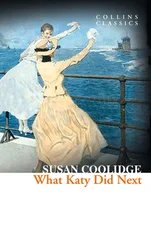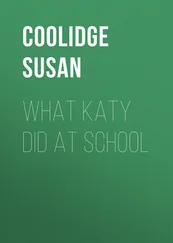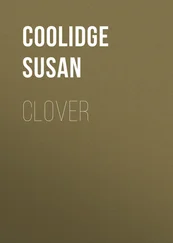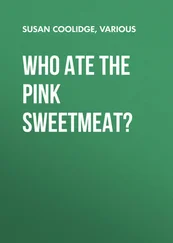Susan Coolidge - A Round Dozen
Здесь есть возможность читать онлайн «Susan Coolidge - A Round Dozen» — ознакомительный отрывок электронной книги совершенно бесплатно, а после прочтения отрывка купить полную версию. В некоторых случаях можно слушать аудио, скачать через торрент в формате fb2 и присутствует краткое содержание. Жанр: foreign_prose, на английском языке. Описание произведения, (предисловие) а так же отзывы посетителей доступны на портале библиотеки ЛибКат.
- Название:A Round Dozen
- Автор:
- Жанр:
- Год:неизвестен
- ISBN:нет данных
- Рейтинг книги:4 / 5. Голосов: 1
-
Избранное:Добавить в избранное
- Отзывы:
-
Ваша оценка:
- 80
- 1
- 2
- 3
- 4
- 5
A Round Dozen: краткое содержание, описание и аннотация
Предлагаем к чтению аннотацию, описание, краткое содержание или предисловие (зависит от того, что написал сам автор книги «A Round Dozen»). Если вы не нашли необходимую информацию о книге — напишите в комментариях, мы постараемся отыскать её.
A Round Dozen — читать онлайн ознакомительный отрывок
Ниже представлен текст книги, разбитый по страницам. Система сохранения места последней прочитанной страницы, позволяет с удобством читать онлайн бесплатно книгу «A Round Dozen», без необходимости каждый раз заново искать на чём Вы остановились. Поставьте закладку, и сможете в любой момент перейти на страницу, на которой закончили чтение.
Интервал:
Закладка:
So the song and the circling movement went on, faster and more fast, and round and round, till Karen's head swam and her senses seemed to spin in a whirling dance; and she knew no more till roused by the opening of the door, and Fritz's voice exclaiming: "Come in, Dame Klaus – come in! Karen! Where are you, wife? Ah, here she is, fast asleep, and the little man is asleep too."
"I am not asleep," said Karen, finding her voice with an effort. Then, to her husband's surprise, she began to weep bitterly. But, for all his urgings, she would not tell the cause, for she was afraid of Dame Klaus's tongue.
The dame shook her head over the sick baby. He was very bad, she said; still, she had brought through others as bad as he, and there was no telling. She asked for a saucepan, and began to brew a tea of herbs, while Karen, drawing her husband aside, told her wonderful tale in a whisper.
"Thou wert dreaming, Karen; it is nothing but a dream," declared the astounded Fritz.
"No, no," protested Karen. "It was not a dream. Baby will be well again, and great things are to happen! You will see! The little men know!"
"Little men! Oh, Karen! Karen!" exclaimed Fritz.
But he said no more, for Karen, bending over the cradle, lifted the strange silver coin which was tied round the baby's neck, and held it up to him with a smile. A silver piece is not a dream, as every one knows; so Fritz, though incredulous, held his tongue, and neither he nor Karen said a word of the matter to Mother Klaus.
Baby was better next day. It was all the herb-tea, Mother Klaus declared, and she gained great credit for the cure.
This happened years ago. Little Fritz grew to be a fine man, sound and hearty, though never as tall as his father. He was a lucky lad too, the villagers said, for his early taste for minerals caught the attention of a rich gentleman, who sent him to the school of mines, where he got great learning. Often when the mother sat alone at her wheel, a smile came to her lips, and she hummed low to herself the song of the little old men: —
"Eyes to pierce the darkness through,
Wit to grasp the hidden clew,
Heart to feel and hand to do, —
These the gnomes have given to you."
HELEN'S THANKSGIVING
MAMMA, would you mind very much if I should learn to make pies?"
This request sounds harmless, but Mrs. Sands quite started in her chair as she heard it. She and Helen were sitting on either side of a wood-fire. The blinds had been pulled down to exclude the chill November darkness, and the room was lit only by the blazing logs, which sent out quick, bright flashes followed by sudden soft shadows, in that unexpected way which is one of the charms of wood-fires. It was a pretty room, in a pretty house, in one of the up-town streets of New York, and the mother and daughter looked very comfortable as they sat there together.
"Pies, my dear? What do you mean?"
"I'll tell you, mamma. You're going to Grandmamma Ellis for Thanksgiving, this year, you know, and papa and I are going up to Vermont, to Grandmother Sands?"
"Yes."
"Well, I don't remember grandmother much, because it is so long since she was here, but the one thing I do recollect is how troubled she was because I didn't know anything about housekeeping. One day you had a headache, and wanted some tea; and you rang and rang, and Jane was ever so long in fetching it, and at last grandma said, 'Why don't you run down and see to it, Helen?' And when I told her that I wasn't allowed to go into the kitchen, and beside that I didn't know how to make tea, she looked so distressed, and said, 'Dear me, dear me! Poor little ignorant girl! What a sad bringing up for you in a country like ours!' I didn't understand exactly what she meant, but I have never forgotten it, and do you know, mamma, just that one speech of grandma's has made me want to do ever so many things. I never told you, but once I made my bed for more than a week, – till Bridget said I was 'worth my salt as a chambermaid,' and I used to dust the nursery, and sweep. And the other day it came into my head suddenly how pleased grandmother would be if I carried her a pumpkin-pie that I had made myself; so I asked Morrison, and she said she'd teach me, and welcome, if you didn't mind. Do you mind, mamma?"
"You know, dear, I don't like to have you about with the servants, and I never wanted you to become a drudge at home, as so many American girls are. Then you have your lessons to attend to besides."
"Yes, mamma, I know, but it will only take one morning, and I'll not begin till school closes, if you'd rather not. I really would like to so much, mamsie?"
Helen's pet name for her mother was coaxingly spoken, and had its effect. Mrs. Sands yielded.
"Very well, dear; you may, if you like, only I wish you could wear gloves."
"O mamma! nobody makes pies in gloves. But I needn't put my hands in at all, except for rolling the paste, Morrison says so."
Mrs. Sands was not so silly a woman as she sounds. Born and bred in the West Indies, the constant talk about servants and housekeeping, that met her ears when she came to New York, a young married woman, so puzzled and annoyed her that she somewhat rashly decided that her child should never know anything about such matters. Morrison, the good old cook, had lived with her since Helen was a baby, and all had gone so smoothly that there had never seemed occasion for interference from anybody. And Helen would have grown up in utter ignorance of all practical matters, had not a chance remark of her thrifty New England grandmother piqued her into the voluntary wish of learning.
It was with a good deal of excitement, and a little sense of victory as well, that Helen went downstairs, a few days later, to take the promised lesson. The kitchen looked very cheerful and neat, and Morrison was all ready with her spice-box, eggs, pie-dishes, and great yellow bowl full of strained pumpkin; likewise a big calico apron to tie over Helen's dress. First they made the crust. It was such good fun pinching the soft bits of lard into the nice, dry-feeling flour, that Helen would willingly have prolonged the operation, but Morrison objected. Pastry didn't like to be fingered, she said; and she made Helen wash her hands, and then mix in the ice-water with a thin-bladed knife, cutting and chopping till all was moistened into a rough sort of dough. Next, she produced the rolling-pin, and showed her how to beat the dough with dexterous strokes, up and down, and cross-ways, till it became a smooth paste, which felt as soft as velvet, and then how to roll it into a smooth sheet, lay on the butter in thin flakes, fold and roll again.
"Now wrap this towel all round it, and I'll set it into the ice-chest till we want it," she said. "It'll puff the minute it goes into the oven, never fear; I can always tell. You like it, – don't you, – Miss Helen dear?"
"Yes, indeed, ever so much. I hope the pies will be good; grandmamma will be so pleased."
"They'll be good," pronounced Morrison, confidently. "Now sift in plenty of sugar, miss."
So Helen put in "plenty" of sugar, and then, as directed, grated lemon-peel, lemon-juice, cinnamon, ginger, nutmeg, melted butter, a pinch of salt, beaten eggs, a dash of rose-water, and then a little more sugar, and "just the least taste of cinnamon," till Morrison pronounced the flavor exactly right, and Helen declared that for all she could see, pumpkin-pies were made of anything in the world except pumpkins. Last of all went in a great pour of hot milk; then the pie-dishes were lined, filled, and set in the oven, after being ornamented with all manner of zigzags and curly-queues of paste round their edges; and Helen rushed upstairs to tell her mother that pie-making was "just lovely," and she would like to be a cook always, she thought. By Morrison's advice she wrote the whole process down in a book while it was fresh in her mind, and she was glad afterwards that she had done so, as you will see.
Читать дальшеИнтервал:
Закладка:
Похожие книги на «A Round Dozen»
Представляем Вашему вниманию похожие книги на «A Round Dozen» списком для выбора. Мы отобрали схожую по названию и смыслу литературу в надежде предоставить читателям больше вариантов отыскать новые, интересные, ещё непрочитанные произведения.
Обсуждение, отзывы о книге «A Round Dozen» и просто собственные мнения читателей. Оставьте ваши комментарии, напишите, что Вы думаете о произведении, его смысле или главных героях. Укажите что конкретно понравилось, а что нет, и почему Вы так считаете.












